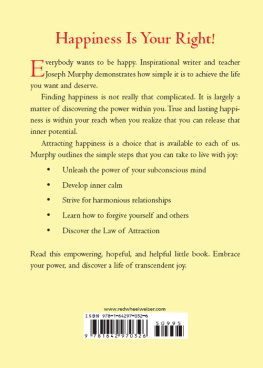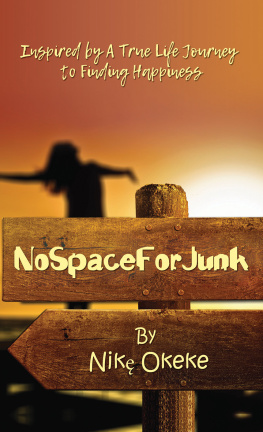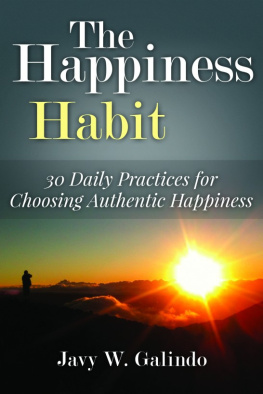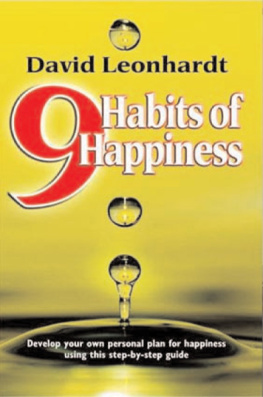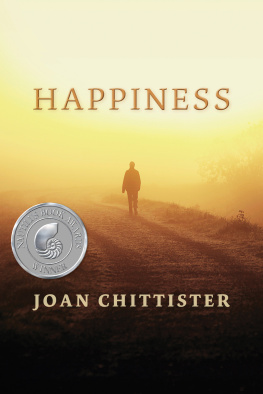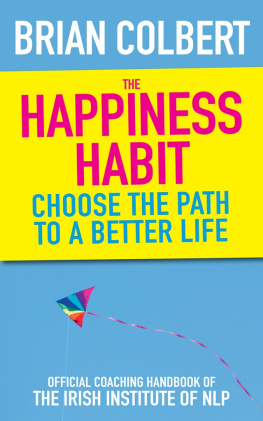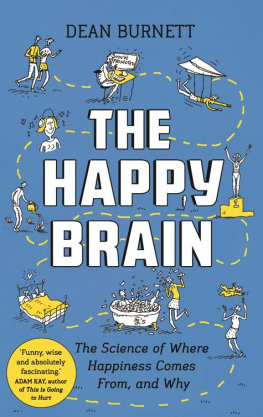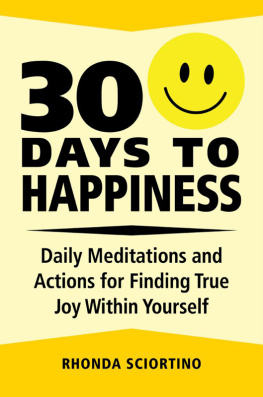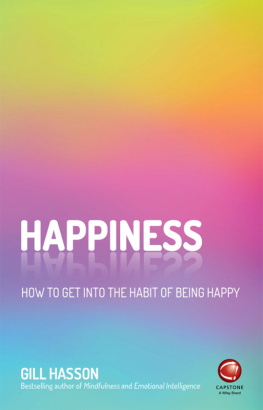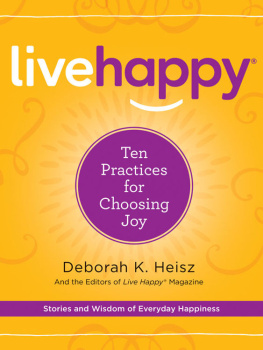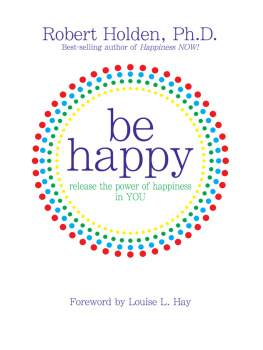GET THE HAPPINESS HABIT
Christine Webber

To my lovely husband, David Delvin, who is
not responsible for my happiness, but who contributes
to it more than I can say.
This is the second book I have done with Bloomsbury Reader and I would just like to say that it is a real pleasure to work with everyone at this company and particularly with Stephanie Duncan and Magda Bojko.
CONTENTS
It gives me immense pleasure to introduce this, the second edition of Get The Happiness Habit. The World Health Organisation defines mental health as a state of well-being in which every individual realises his or her potential, can cope with the normal stresses of life, can work productively and fruitfully, and is able to make a contribution to her or his community. At the very heart of this is the sense of happiness. Without happiness, we cannot have enjoyment, we cannot experience the world in its dazzling Technicolor; we cannot appreciate our life for the wonderful gift that it is. The idea that some people live life without experiencing true happiness upsets me deeply, because it doesnt have to be like that.There are as many reasons that people might not experience happiness as there are unhappy people. But unhappiness is not a terminal state. It does not have to envelope you. Feeling unhappy sometimes is normal, but when it dominates and overshadows all else, then it diminishes our experience of life and needs to be addressed. Written in her down to earth, no-nonsense way, Christine Webber brings hope and happiness to those who thought such things were not meant for them.
This book is truly one of the best books for dealing with unhappiness that I have come across and I am overjoyed that it is now back in print by popular demand, updated and refreshed for a new readership. Indeed, when it was out of print several years ago, I bought as many second hand copies as I could find as I so frequently gave it to friends, family and patients who were experiencing low mood. I remember posting a copy to a dear friend who I have known since childhood but who had only just confided in me that she felt low most of the time and had felt like this for years. I was astonished that she had been keeping her unhappiness secret for so long. She described a dull, aching sensation of hopelessness, a chronic sadness and sense of failure. It broke my heart to hear her talking like this. I can think of no better endorsement for this book than the text she sent me a few months later: that book has changed my life.
Max Pemberton
I originally wrote this book in the year 2000.
A lot has happened since then.
For a start, there have been calamitous events that have left us feeling that the world is a more dangerous place than it was at the turn of the century.
Back then, most of us could not have predicted the terrors of 9/11 in New York or 7/7 in London. Neither could we have foreseen the wars we have been engaged in since then, or the various, and increasingly violent acts, that have been carried out by extreme organisations in the past ten years or so.
Interestingly though, I dont believe that these tragedies have made us more unhappy. Maybe the reverse is true.
Certainly regarding both 9/11 and 7/7, I noticed that in the immediate aftermath of these horrific events, people seemed to be nicer to each other in their daily lives at work, on the trains and buses, walking in the street, queuing in shops and so on. They seemed more courteous: more aware perhaps that the individuals around them were also dealing with the same bewilderment and sorrow, and that we were somehow all in it together.
Bad things often bring out the best in good people. And there is nothing like a disaster for focusing our minds on just how valuable life is, and how happy we actually are.
So, in terms of world events, there have been big changes since 2000.
Another huge change has been in the growth of social media and instant communication.
Many of us now rely on Twitter for breaking news far more than we do on Sky or BBC News let alone the daily newspapers.
Back in 2000, social media was a term we had yet to learn. We did have AOL messaging and Friends United. But Facebook was four years away from its launch, and Twitter didnt arrive until 2006.
According to a helpful breakdown of social media activity on the University of Carolina at Pembroke website, there are now about 1.28 billion Facebook users worldwide, 187 million on LinkedIn, and 255 million people with Twitter accounts.
Does this social media revolution impact on our happiness? Of course it does. Its never been easier to be in contact with individuals who matter to us, wherever they are in the world. So there are lots of bonuses to how we live now. On the other hand, there is no doubt that sad or depressed or lonely people can find operations like Facebook quite intimidating. They compare their own lives to the apparently more exciting or more luxurious lives of their contacts, and as a result often feel even less happy or fulfilled or successful.
But of course, most of us do not compose posts which say: Feel like death. Miserable as sin. Cant get a partner. Lifes horrendous. And the people who do tap in such messages usually find that large numbers of their followers or friends drift away. I know I have been guilty of un-friending someone whose posts always had the theme: everything that can go wrong happens to me.
So, to some extent we tend on Facebook at least to focus on the positive. And thats intriguing to me, because I think it helps to increase our levels of happiness.
It does seem to me then that though there is plenty in life to be worried about, people may be more buoyant than they were when I originally wrote the book. In 2000, I was very taken with how many gloomy adults there were walking around. This time, Ive again been studying people on trains, in the street, in restaurants, at the theatre and so on and it just seems to me that on the whole they look rather more engaged with life than they did 15 years ago. This is just my observation, but I mention it nonetheless.
Theres another big change since 2000 and that is in our perception of how much happiness matters.
When I wrote this book there were hardly any others on the subject.
Moreover, most therapists and doctors were unaware of the Positive Psychology movement. As yet, no one in the west was talking about Mindfulness. The excellent organisation Action for Happiness had not been founded. And very few health journalists were writing about the science of happiness, or about how vital happiness is to longevity and physical health. Now, its a hot topic.
I have a file bulging with articles and cuttings about happiness, and that only represents a tiny proportion of the data published on the subject. Ive collected numerous versions of Top 10 Tips To Be Happy, articles on foods to promote well-being, first-person accounts of famous people adopting the strategies of inspirational gurus such as the Dalai Lama, Norman Vincent Peale, Ed Diener and Martin Seligman. Then there are features explaining how six months after winning the lottery you are likely to be no happier than if youd been paralysed in a car crash. There are reports making exaggerated claims such as Psychologists Now Know What Makes People Happy (in case youre interested, it was: forgive easily and surround yourself with family and friends). And there are accounts of studies informing us that money doesnt buy us happiness but that happiness tends to make us more financially successful.


